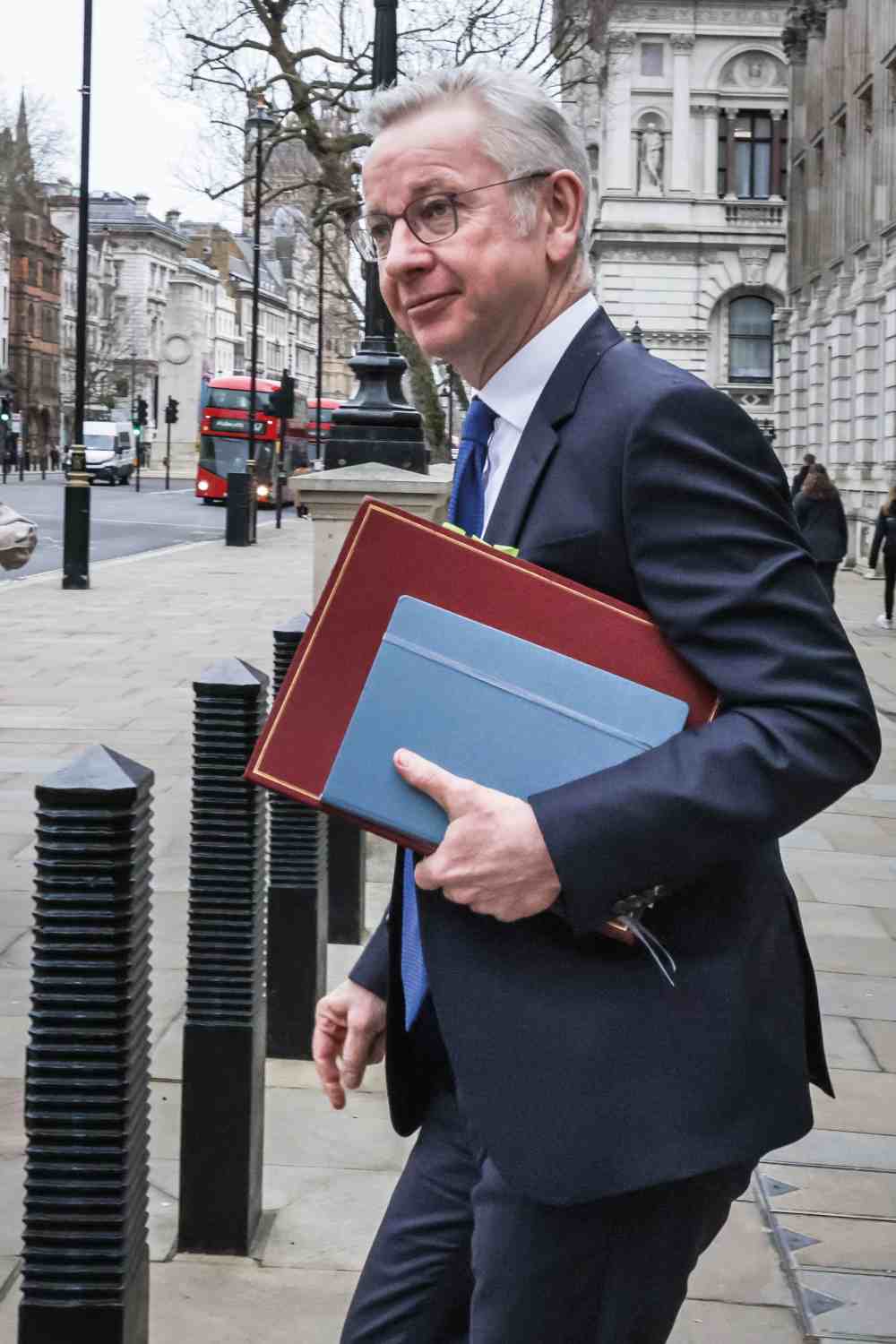Lords Diary: Lord Moylan
A view of the House of Lords chamber showing the Sovereign's Throne | Image by: PA Images / Alamy Stock Photo
4 min read
A wicked week of no rest in the Lords – with a whiff of Russian Revolution thrown in
“There’s no rest for the wicked” was a mantra of my mother’s and it has been a wicked week in the House of Lords dominated by two heavily attended evenings of multiple ping-pong divisions on Rwanda.
There is a pinch-point by the throne – where the stream of members voting Content has to cross the stream of those voting Not Content, causing mayhem in every division – and this always makes me wonder if Augustus Pugin really thought through what might be called the ergonomics of his design. Perhaps the new Pugin who will design our palatial chamber in the Queen Elizabeth II Conference Centre will do better.
It has been my great privilege since October 2022 to chair the Built Environment Select Committee. Last year we published a report on how the government’s ambitions for homebuilding and for improvements to the environment were getting in the way of each other, with the result that about 14 per cent of England’s land area was now under what is effectively a Natural England ban on new residential development. It’s a good read: I recommend it.
Select committee reports are always (eventually) debated and the slow drip of time brought this report to the floor of the House this month, on my motion to take note. A warm glow of agreement suffused all corners of the House, irrespective of party, that this was all a bit dysfunctional. But, despite this conclusion, most of my colleagues still believe, it seems, that government is an effective mechanism for delivering an impossibly wide range of objectives, from banning e-scooters (nobody takes any notice) to making other countries stop being beastly to their people (they don’t take much notice either). Maybe the lesson for whomever holds the reins of power after the general election is that the government machine is pretty useless at most of the things it does and that focusing on a small number and doing them well may be the better course.
I have been thinking a lot about marriage value lately – not the value of marriage, but the value created when a leasehold property is united with its freehold. The idea is that the value of the freehold and the value of the lease, when held separately, are in aggregate less than the value of the two when united in single ownership. The law recognises this and says that, when a leasehold house is enfranchised or an apartment’s lease extended (which has similar market arithmetic) the marriage value is split equally between freeholder and tenant. In effect this means the tenant has to pay half the marriage value to the landlord.
It’s all very Russian Revolution. Even the so-called 'leftie lawyers' are worried about the damage it does to the reputation of English law
Proponents of the Leasehold and Freehold Reform Bill (currently in the Lords) claim that it “abolishes” marriage value. Of course it does nothing of the sort. By removing marriage value from the calculation of the premium to be paid, it simply transfers wealth from landlord (boo) to tenant (hurrah). But some landlords are charities (hurrah) and some tenants are rich (boo). And no one has explained why this interference with private contracts and the rights of property should be advanced by a Conservative government. The total values involved are said to run into many billions. It’s all very Russian Revolution. Even the so-called “leftie lawyers” are worried about the damage it does to the reputation of English law.
 Michael Gove | Image by: Imageplotter / Alamy Stock Photo
Michael Gove | Image by: Imageplotter / Alamy Stock Photo
And it does rather involve telling courts and tribunals to treat something as having no value that clearly does.
Could this be a parallel to telling courts and tribunals to treat Rwanda as safe whether it is or not? But in a boo/hurrah world it’s indelicate to trespass into such nuance.
Michael Gove is behind it. Like all Conservatives, I have undiluted admiration and affection for this gifted and mercurial politician, who has been so effective throughout his career, constantly adapting to new circumstances. But who would have thought that his political apotheosis would be as an icon of Bolshevism?
Lord Moylan is a Conservative peer
